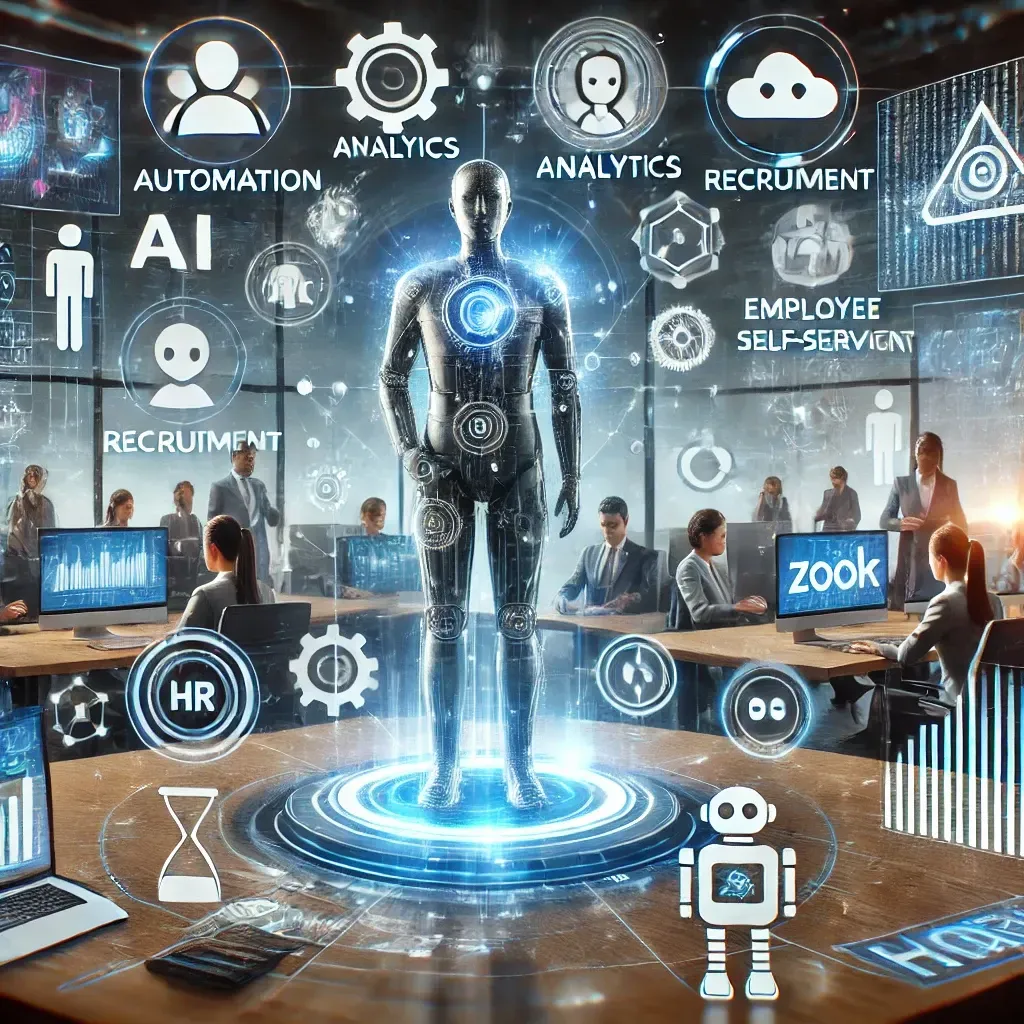
Leveraging Technology and Automation for Enhanced Operations

The future of HR revolves around technology and automation, transforming operations to enhance efficiency and innovation. This transformation is crucial for optimizing HR processes, elevating employee experiences, and empowering better decision-making through access to data and analytics.
Here’s how technology and automation are reshaping HR:
1. Data-Driven Decision-Making
- HR Analytics & AI: Leveraging data analytics tools and AI algorithms, HR teams can now make informed decisions based on real-time insights. Predictive analytics helps in forecasting employee turnover, improving recruitment strategies, and assessing employee engagement.
- Employee Experience Metrics: With advanced tools, HR can track employee satisfaction and engagement levels, ensuring a more tailored approach to workplace management.
2. Automating Administrative Tasks
- Automated Onboarding & Offboarding: Tools like applicant tracking systems (ATS) and HR management systems (HRMS) help automate repetitive tasks such as onboarding new employees, managing payroll, and offboarding, significantly reducing time and errors.
- Payroll Automation: Integration with tools like Workday and other cloud-based payroll solutions streamline payment processing, tax calculations, and compliance with labor laws.
3. Remote Work & Cloud Technology
- Cloud-Based HR Platforms: The adoption of cloud-based tools allows HR departments to manage remote workforces seamlessly. Tools like Workday, BambooHR, and SAP SuccessFactors allow remote access to employee data, performance metrics, and more, irrespective of location.
- Virtual Recruitment & Training: Virtual interview platforms, online assessments, and remote training modules are now standard, making it easier to hire and onboard talent globally.
4. Talent Management & Learning Development
- AI-Powered Recruitment: AI tools like chatbots and resume-screening software accelerate the hiring process by matching candidates to roles based on skill sets, improving diversity and inclusion.
- Learning Management Systems (LMS): AI-based learning platforms enable continuous employee learning by tailoring training programs according to individual growth paths and job roles.
5. Enhanced Employee Engagement & Retention
- Employee Self-Service Tools: With HR portals and mobile apps, employees can manage tasks such as leave applications, benefits, and expense claims, providing more autonomy and improving job satisfaction.
- Wellness Programs: Technology has enabled the integration of wellness programs via platforms that track employee health, stress levels, and overall well-being, thus contributing to better productivity and reduced absenteeism.
6. Compliance & Risk Management
- Automated Compliance: HR automation tools ensure that companies remain compliant with changing labor laws, reducing risks of legal disputes and fines. These systems help HR teams stay updated with laws across different geographies.
- Secure Data Management: With data privacy regulations becoming stricter, HR tools ensure secure management of sensitive employee data, safeguarding against potential breaches.
Conclusion
The future of HR is heavily influenced by automation and technology, ensuring that HR professionals can focus on more strategic tasks while technology handles operational duties. This shift enhances productivity, reduces costs, and leads to a more dynamic and engaging workplace.
As HR evolves with technological advancements, organizations will be better equipped to foster talent, improve employee satisfaction, and remain competitive in an ever-changing business landscape.